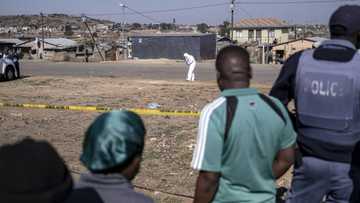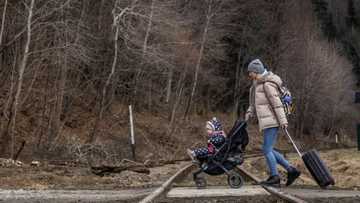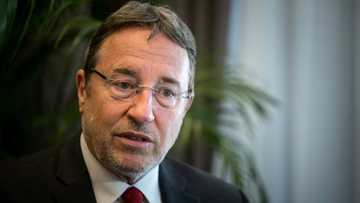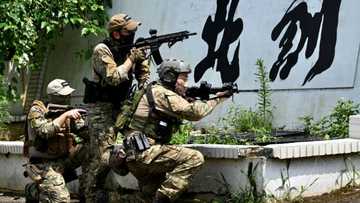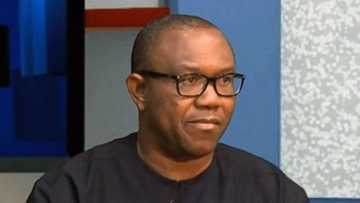We Stayed Inside Bunkers - Nigerian Student Narrates Surviving Russia's Invasion of Ukraine
On Sunday, June 19, 2022, when the Medical and Dental Council of Nigeria (MDCN) announced that it would not recognise medical and dental degree certificates issued by medical schools from Ukraine from 2022, Akinola Catherine knew another trouble was brewing, and this time it was coming from her home - her country.
In what came in as another mind-boggling stunner, the association, in a press release, declared that “until when normal academic activities resume”, it would not recognise medical diplomas from Ukraine. MDCN added that “online medical training done in any part of the world is short of an acceptable standard and is not recognised.”
By this statement, the fate of the hundreds of Nigerian medical students trapped in the Russia-Ukraine war was put in the billowing smoke of uncertainties.
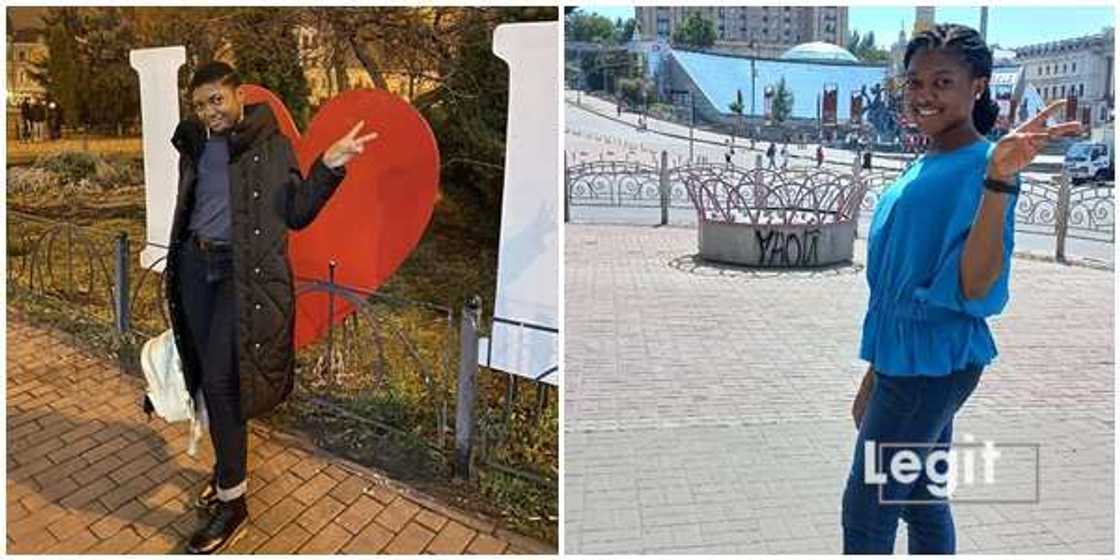
Source: Original
“It is an injustice, more of a Nigerian issue on its own. It’s totally unfair to the students, especially to those who graduated this year from Ukraine… it is just unnecessary,” Catherine told Legit.ng in a conversation, wondering why such a hasty decision would be taken only when the war started in Ukraine, not during COVID-19.
When home is a mouth of shark
For Catherine and a lot of Nigerian students, the journey of uncertainty did not start at home. The nightmare, which probably was responsible for the MDCN’s directives, started on February 24, 2022, when a big blast occurred in Kiev, Ukraine’s capital. The Russian military had invaded the country in one of the most brutal attacks in modern history, leaving dreams shattered and people scampering for safety.
PAY ATTENTION: Share your outstanding story with our editors! Please reach us through info@corp.legit.ng!
Ukraine, an independent nation, was safeguarding its freedom and sovereignty before being unjustly attacked by the Russian soldiers, an action Moscow tried to cover up as a “special military operation.” The invasion has since degenerated into a full-scale war, with many casualties recorded.
According to the United Nations High Commissioner for Refugees (UNHCR), “the escalation of the conflict in Ukraine has caused civilian casualties, and destruction of civilian infrastructure, forcing people to flee their homes seeking safety, protection and assistance.”
Over five million individual refugees from Ukraine have been recorded across Europe, while the number of border crossings from Ukraine since February 24, when the first attack occurred, stands at 8,787,212 as of Wednesday, July 06.
Catherine, a student of the Taras Shevchenko National University of Kyiv, narrated that she was sleeping in the morning when one of her friends rushed in to wake her up about Russia’s first attack, which was carried out around 5am in morning.
“Someone came to my room to tell them that the war had started. Everybody started panicking… But I was able to calm some of my friends down.. though the next line of thought was how to survive.
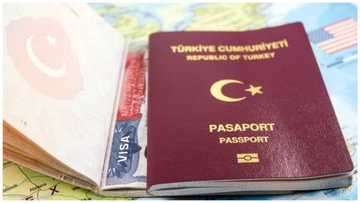
Read also
Kuje jailbreak: Bad news as Turkey removes Nigeria from list of countries eligible for Turkish E-Visa
“At 8am, there was heavy traffic in Kiev, everyone with their cars trying to leave the city. Everywhere was jampacked, the queue was crazy at where we went to get food. We needed the food. If someone told me the Kiev that I know would be so empty, I would never believe,” she said.
Ukrainian forces had already filled the capital city to ensure the safety and protection of the people. Catherine said she and her friends packed some of the luggage and ran into the bunker, a defensive military fortification designed to protect people and valued materials from falling bombs, artillery, or other attacks.
Inside the bunker, they could still hear the panic-filled sound of blasts. To compound their nightmare, the bunker was not comfortable as there were specks of dust which made people constantly cough. They had to stay in the bunker and experience hunger or move out of it and take some risks. Catherine said they chose the latter because it gave some sign of hope.
Eventually, they left their friends and headed to the train station, with their lives in their hands amid rising pressure and trauma. They met people there, also in search of safety.
Getting back home
With the war taking a severe course, the federal government of Nigeria announced plans to evacuate nationals stranded in Ukraine, all thanks to Air Peace, Nigeria’s biggest national carrier. Catherine said the only option was to be repatriated back home, though not without some nasty hitches.
Before the repatriation, she had to go to Lviv where she reunited with her friends who were trying to force their way to neighbouring countries like Poland and Hungary. From Lviv she got to Ternopil, a city in the western part of Ukraine, and from there to Romania.
“The space I stayed in Romania, the Nigerian government got it for 3 days. After that, they told everyone to leave and go find their bearing. I knew no one there, no place, nothing. I was not going to sleep on the streets with no food or something with my friends and siblings. It seemed like it was going to be another hell ahead. Also it is an EU country. Spending in euros despite spending money migrating from Ukraine was a lot. So going back home seemed like the best option then.
“I decided to come to Romania. We did not know anyone there, but the Romanians were nice to us. And it was there we got to know about the Nigerian government’s evacuation plans. The whole Nigerian thing was just the best option, though it was another trauma entirely,” she said.
At the Romanian airport, Catherine said she and other Nigerians had to wait as the Nigerian government officials “had zero information”, and there was no direction. It was another sad experience for people who have been traumatised by war they never expected.
Since arriving in Nigeria, Catherine said she and her school have been in contact as lectures are now holding online. There are, however, some constraints with the practical process.
“For the online classes, I have to give it to some of our professors. They are doing their best. The teaching process was the same before the war and when the war started. They come at the scheduled time, and they teach us. All the professors are doing that, at least 80% of them. They conduct the classes in the same ways and manners before the war.
“The only challenge is that I don’t feel like a medical student, like knowing certain things that I ought to have known through practicals,” she said.
Ukraine's people and cultural similarities to Nigeria
Catherine is not new to Ukraine, having spent a number of years in the country as a student before the war broke. The young Nigerian lady, giving her general assessment of Ukrainians, described them as “nice” people, though not all of them are accommodating.
“Those I knew were the best. They want to know more about you. I have friends among the Ukranians, I have professors who I can send messages and they will be willing to help,” she said.
In terms of similarities between Nigeria and Ukraine, Catherine maintained that each country has its peculiarities, though people from both countries are nice and open.
Why Russia’s invasion of Ukraine is not justified
Russia’s aggression and invasion of Ukraine have polarised global communities and raised questions over the Moscow government’s right to invade a country with sovereignty and independence in the 21st century.
Away from the global geopolitical risks and economic effects of war like inflation, prevalent arguments have strongly condemned Russia and described the invasion as unjustifiable.
Catherine is also of the belief that the war is highly unnecessary and cannot be justified whatsoever because Ukraine is an independent state.
“Nobody wants the war. Ukraine is an independent country just like Russia. So, nothing justifies it,” she said while calling on the global community to level more tough sanctions on Russia.
On plans going forward, Catherine expressed that she would be happy to go back to Ukraine and further continue her studies and meet her friends. But while that appears uncertain due to the ongoing war, she expressed optimism that things “will get better.”
Source: Legit.ng


